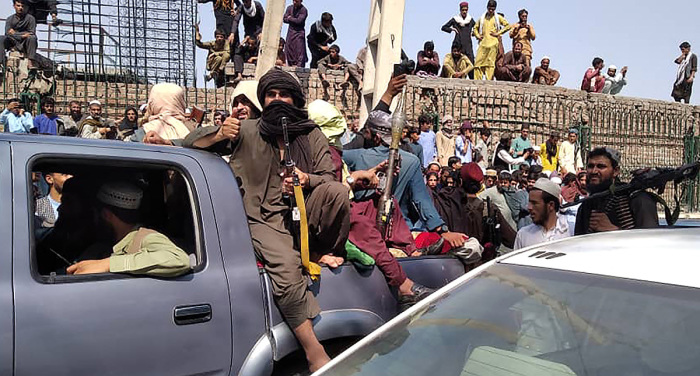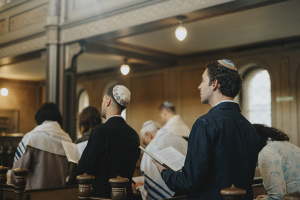What does God think of the Taliban?

The Taliban’s sweeping takeover of Afghanistan is dominating world news. Tomorrow, we’ll examine America’s decision to withdraw through the lens of Scripture and Christian theology. For today, let’s ask some prior questions: Who are the Taliban? What does God think about them? How should we respond biblically to them?
Who are the Taliban?
In my 2011 book, Radical Islam: What You Need to Know, I explained the origins of the Sunni Islamist group known as the “Taliban” (from the Pashto for “students”). According to the most common explanation, when two teenage girls were kidnapped and raped in 1994 by followers of a warlord in Afghanistan, a group of 30 students joined their village cleric, Mullah Muhammad Omar, in rescuing the girls and hanging the group’s commander from a tank barrel.
Their group grew in strength and popularity, eventually gaining the support of religious parties within neighboring Pakistan. In the chaos of post-Soviet Afghanistan, their enforcement of order and law was a welcome relief to the population. They conquered Kandahar, Afghanistan’s second-largest city, at the end of 1994. Two years later, they captured the capital city of Kabul. By 1998, they occupied 90% of the country.
Before long, it became clear that the Taliban would enforce a puritanical version of Islam akin to Wahhabism in Saudi Arabia. They provided sanctuary to Osama bin Laden and formed a crucial base for the rise of al-Qaeda.
After 9/11, they refused to expel bin Laden and end their support for terrorism. In response, a U.S.-led coalition invaded Afghanistan to remove them from power. A new constitution was adopted in January 2004, creating a parliamentary democracy. However, charges of widespread corruption soon surfaced against the new government and have persisted in the years since.
U.S. forces remained in the country as the Afghan government developed a military force intended to prevent the return of al-Qaeda and other terrorist organizations. Over two decades, more than 2,300 U.S. military personnel were killed in Afghanistan, with more than 20,000 wounded.
The 'Islamic Emirate of Afghanistan'
Following prior announcements of troop drawdowns by Presidents Obama and Trump, President Biden said in April that the U.S. would withdraw all its troops from Afghanistan by Sept. 11, 2021. In response, the Taliban have escalated their military engagement across the country in recent days.
Yesterday, they seized the capital city of Kabul. They are planning a ceremony at the presidential palace renaming Afghanistan as the “Islamic Emirate of Afghanistan.”
They are promising a new era of peace and normalcy in the country along with amnesty for those who have battled them for two decades. However, there are already indications of a return to the harsh version of Islam that Afghans lived under from 1996 until the Taliban were driven out of power in 2001.
When they previously ruled Afghanistan, they banned television, music and cinema, and disapproved of girls over the age of 10 going to school. Women had to wear the burqa and had to be accompanied by a male relative whenever they went outside. The Taliban were accused of human rights and cultural abuses such as their destruction of the famous Bamiyan Buddha statues in central Afghanistan.
Now there are reports of such atrocities again. Last month, according to the semi-official Afghanistan Independent Human Rights Commission, Taliban fighters went door to door in one province looking for people who had worked for the government, killing at least 27 civilians, wounding 10 others, and looting homes.
In early July, Taliban leaders in two provinces ordered religious leaders to provide them with a list of girls over the age of 15 and widows under the age of 45 for “marriage” with Taliban fighters.
'Its end is the way to death'
The Taliban follow Deobandi theology (named for a seminary founded in 1866 in the city of Deobond, India). This school excludes all traditions and studies not directly related to the study of the Quran. It rejects reinterpretation of Islamic precepts in accommodation to changing times and seeks to return to the “purity” of the Quran and the Sunnah (practices of the Islamic prophet Muhammad).
In line with this worldview, the Taliban believe religious edicts to have a divine source and thus view them as more authoritative than humanitarian laws stressing individual freedoms.
In this sense, we can view the Taliban as religious zealots. While tribal and social issues are definitely influential for them, their passionate commitment to extreme religious legalism fuels their drive to create a purified Islamic culture.
God’s Word is clear: “There is a way that seems right to a man, but its end is the way to death” (Proverbs 14:12). Like millions of people who follow false religions, the Taliban are deceived by Satan into believing that their religious zeal can save their souls.
The atrocities they have committed in the name of their religion are in fact inspired by the “thief” who “comes only to steal and kill and destroy” (John 10:10). And their treatment of women clearly violates God’s will (cf. Galatians 3:28).
What should be our response?
In this spiritual conflict (Ephesians 6:12), Christians should be praying for God’s protection for those endangered by the unfolding tragedy in Afghanistan. And we should pray passionately for Taliban leaders and followers to meet Jesus in visions and dreams, a miraculous phenomenon now reaching Muslims around the world.
To this end, let’s make Paul’s prayer for his fellow Jews our intercession for the Taliban: “My heart’s desire and prayer to God for them is that they may be saved. For I bear them witness that they have a zeal for God, but not according to knowledge. For, being ignorant of the righteousness of God, and seeking to establish their own, they did not submit to God’s righteousness. For Christ is the end of the law for righteousness to everyone who believes” (Romans 10:1–4).
If you question whether God can answer such a prayer, consider the man who first prayed it. If Saul the persecutor could become Paul the apostle, this fact is clear: it is always too soon to give up on God.
Originally published at the Denison Forum
Adapted from Dr. Jim Denison’s daily cultural commentary at www.denisonforum.org. Jim Denison, Ph.D., is a cultural apologist, building a bridge between faith and culture by engaging contemporary issues with biblical truth. He founded the Denison Forum on Truth and Culture in February 2009 and is the author of seven books, including “Radical Islam: What You Need to Know.” For more information on the Denison Forum, visit www.denisonforum.org. To connect with Dr. Denison in social media, visit www.twitter.com/jimdenison or www.facebook.com/denisonforum. Original source: www.denisonforum.org.




























